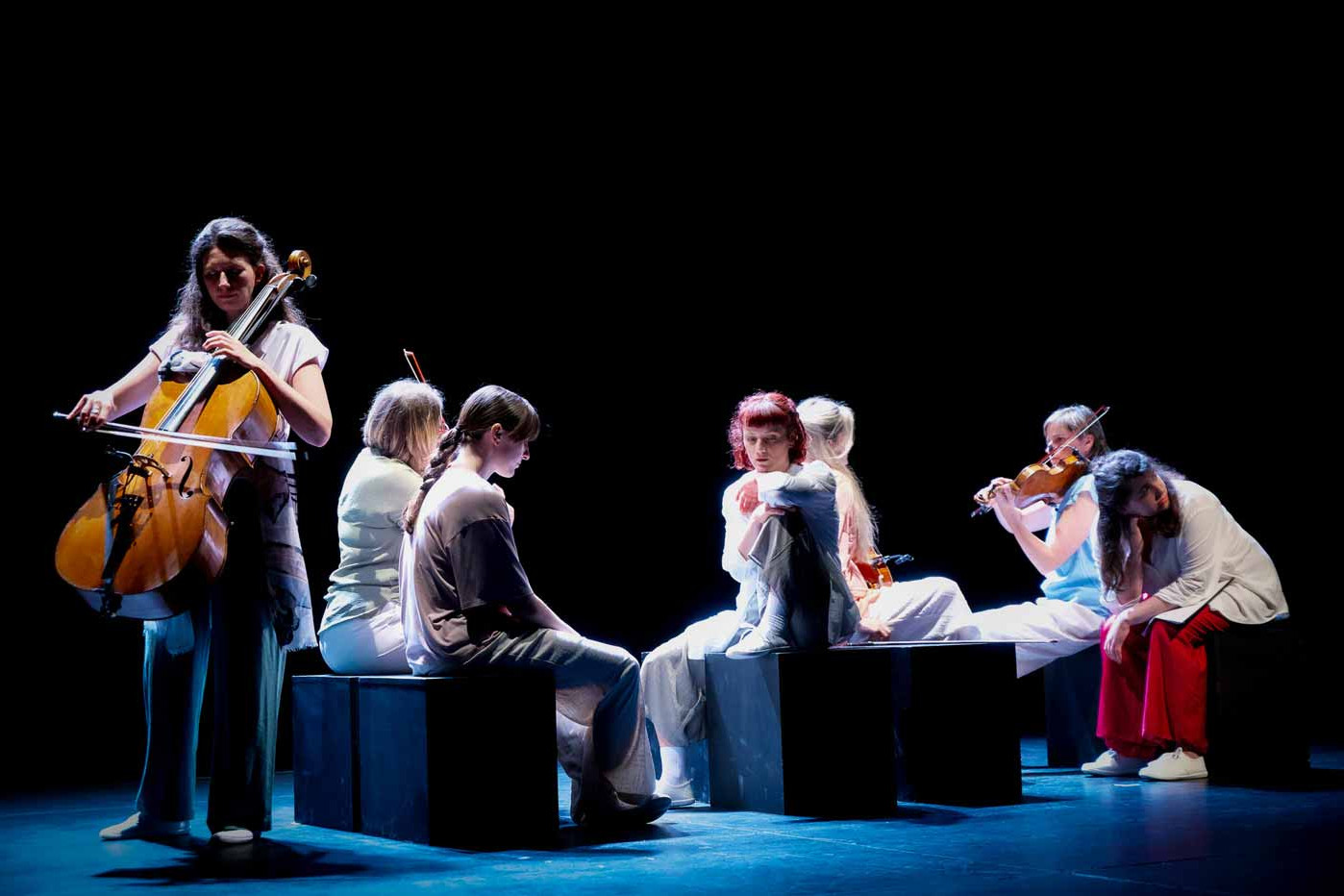
Chronically Hopeful – When Illness Becomes Part of the Story
The world premiere of Chronically Hopeful takes place on 22nd November at the Rainy Days Festival in Luxembourg. Even typing that feels surreal. This piece didn’t just appear out of thin air, it was grown carefully, slowly, with so many hands and hearts shaping it along the way. It’s been a true group effort. I have to give a special mention to Caitlin Kearns and Katie O’Halloran, who were both deeply involved during the early stages of development. Life threw curveballs their way, and they had to step back for personal reasons, but their fingerprints are all over this work.
The seed for Chronically Hopeful was planted during one of those seasons of life when someone you love is hurting, and you feel utterly helpless. Our dear friend and colleague, violinist Jane Hackett, had endured a relentless year of misdiagnoses. A tangle of wrong answers, and then finally, the real one: Functional Neurological Disorder (FND). Everything changed for her after that.
Watching her navigate that storm broke my heart. It also made me think about how easy it is to feel invisible when you can’t show up the way you used to. Jane is a phenomenal musician, but how do you stay part of the conversation when your body sets new limits? I started looking for ways to involve her that didn’t push her to the point of collapse.
And, if I’m honest, I think I was also wrestling with my own history. I’ve lived with chronic illness since my twenties. For years, I kept it under wraps. In the freelance world, admitting you’re not 100% feels like inviting people to doubt you. So you push through. You keep saying yes. You smile and perform “being fine.” It’s exhausting. Somewhere along the line, I realised that honesty, saying when you need rest, admitting when you can’t, doesn’t make you weaker. It frees you. It frees everyone else too.
That’s where Chronically Hopeful came from.
Could we build a piece that didn’t just talk about chronic illness and unseen disability but worked in a way that embraced those realities? Could we create a rehearsal room where care, rest, and flexibility weren’t just buzzwords but the framework? Could we stop pretending and make something truthful?
And then there was another ridiculous idea. I decided to direct it! My first time. I was terrified, obviously. But it felt too personal to hand over to someone else once Katie had to depart the project.
We gathered together an extraordinary team of women—dancers, musicians, a writer, an actor—many of whom live with chronic illness or neurodivergence themselves. The moment we sat in that first rehearsal room, I knew this would be different. There was an unspoken understanding. A kind of collective exhale.
We worked gently. We stopped when we needed to. There was a therapy dog padding around, adding his quiet reassurance. We listened to one another. We adapted when something wasn’t working. There was no pecking order, no sharp elbows. Just trust. Just care.
What emerged from that process was our stories, which began to weave themselves into the piece- moments of pain, resilience, joy, humour. It stopped being just about illness. It became about being human. About connection.
Here’s the incredible team who made it possible:
Creative Team
Director and Concept: Beth McNinch
Writer: Trudie Gorman
Composer: Libby Croad
Actor: Eleanor Walsh
Musicians: Jane Hackett, Ioana Petcu-Colan, Beth McNinch, Katie Tertell
Choreographer: Ali Clarke
Dancer: Safire Hikari
The final work is something I’m deeply proud of, but honestly, the way we made it might be the real triumph. It taught me that accessibility is not a side note. It’s the foundation. And it makes the art better—more generous, more open, more alive.
Since Chronically Hopeful, we have completely shifted how we work at Musici Ireland. Accessibility isn’t something we “add on” anymore; we’re attempting to bake it into every plan, every rehearsal, every conversation. And it has made everything richer.
This project has changed me. I’ve learned how powerful it is to give people space to show up as their full selves. I’ve learned that directing isn’t about being in control, it’s about creating conditions where trust and creativity can thrive. And I’ve learned that hope, even when things are uncertain or hard, is one of the most radical gifts we can offer each other.

